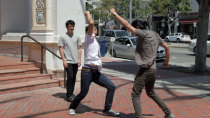This year I was invited to give the Rewley House Lecture, a multidisciplinary research talk open to all, at the Department for Continuing Education, where I am Director of Studies in Data Science.
I talked about how data science has been used during the COVID-19 pandemic, spanning vaccine design, clinical trials, surveillance and policy advice, and highlighting the identification of risk factors for disease.
If you like this talk, you might be interested in the following courses available this academic year:
- Infectious Disease Modelling: Mathematical Techniques (September 2022)
- Infectious Disease Modelling: Applied Methods in R (January 2023)
- Pandemic Data Science (April 2023)
